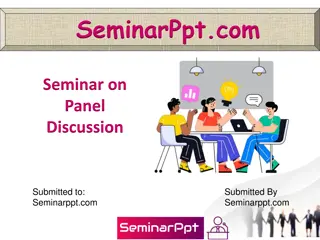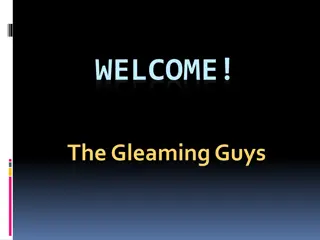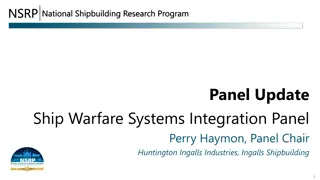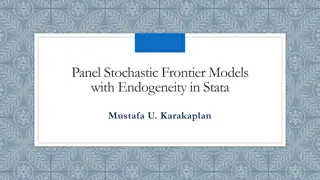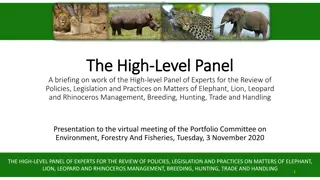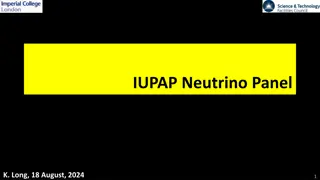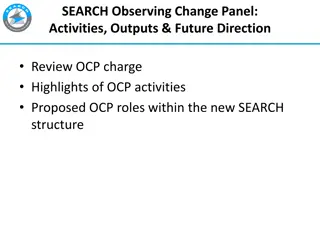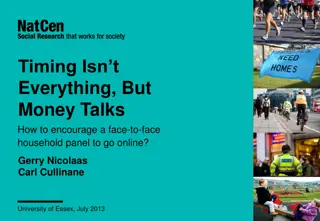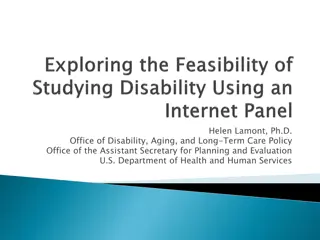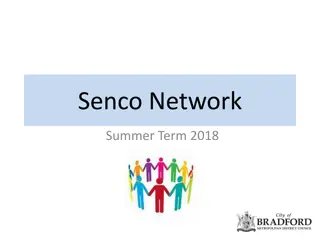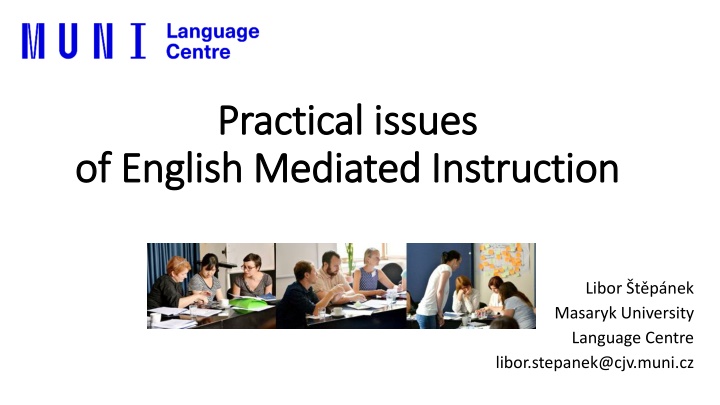
Practical Issues in English Mediated Instruction at Masaryk University Language Centre
Explore practical issues related to English Mediated Instruction (EMI) at Masaryk University Language Centre, including the role of language, community of practice, and the teaching of subjects in English to non-native speakers in non-English speaking countries. Understand the importance of interactivity and co-construction of knowledge in the learning process.
Download Presentation

Please find below an Image/Link to download the presentation.
The content on the website is provided AS IS for your information and personal use only. It may not be sold, licensed, or shared on other websites without obtaining consent from the author. If you encounter any issues during the download, it is possible that the publisher has removed the file from their server.
You are allowed to download the files provided on this website for personal or commercial use, subject to the condition that they are used lawfully. All files are the property of their respective owners.
The content on the website is provided AS IS for your information and personal use only. It may not be sold, licensed, or shared on other websites without obtaining consent from the author.
E N D
Presentation Transcript
Practical issues Practical issues of English Mediated Instruction of English Mediated Instruction Libor t p nek Masaryk University Language Centre libor.stepanek@cjv.muni.cz
agenda agenda EMI and its practitioners role of the language in EMI practical issues
EMI EMI teaching of subjects (e.g. History, Sport and Chemistry) through the medium of English to mostly non-(English)native speakers in non- English speaking countries ...
role of the language tool medium
- community of practice - Learning is a social and dialogic process, where knowledge is co- constructed rather than "transmitted" or "imported" from teacher or course book to learner. The direct route to learning is therefore located in the interactivity between teachers and learners, and between the learners themselves. Adapted from Thornbury, S. (2005) Dogme, Dancing in the dark? a shared detailed understanding between teacher and students of what is going on, what needs to be done, and how it will be done. Adapted from Boomer, G. (1992), Negotiating the curriculum
practical issues expliciteness accuracy consistence
accuracy accuracy
accuracy accuracy What do you do when you shed light and look at something? shed light = drawing attention to smth; reveal some new aspect of x, previously hidden; examine something that has thus far remained in the dark; drawing attention to a topic; use different authors perspectives to illuminate certain parts of a phenomenon/text ; is referred to st. which has not been yet (so much analyzed) look at = examine; Directing reader's attention to x; address a certain topic; to draw attention by analysing in greater depth; to consider a source
accuracy accuracy Comments on claim and hypothesis: A claim is a positive statement about what the world is like; vs a hypothesis is a prospective theory about the what the world is like, to be filled in with evidence and verified/falsified
Redirecting the discussion ... is important but it's too complex for us to deal with now. I see where you re going but really we need to keep to the topic. I think the aim of this seminar is to focus on ... rather than .... That's not something we have time to deal with today, but .... Let s come back to that [point] later. Interrupting to comment If I could just come in here. Sorry to butt in, but .... Can I just add.... That s a really interesting point but it s worth remembering that That s great but have you thought about Clarifying Questions That's not really what I was asking. My question is about ... Perhaps I didn't make my question clear. What I asked/meant was.. I think you've answered a slightly different question. What I would like to know is ... I understand that but what I actually had in mind was .... I think you ve got the wrong end of the stick there, what I meant was
One of the world leading figures is the Pope. Are you planning the trip in winter? How old are you? 15
One of the world leading figures is the Pope. (Chinese) What is the Pope? Are you planning the trip in winter? (Argentinean) Yes, I ll arrive in August. How old are you? (Korean) Do you mean Korean or international age? 16
Academic 15 minutes means a) it is tolerated if a teacher appears in class 15 minutes late. b) it is tolerated if a student appears in class 15 minutes late. c) the class has to start 15 minutes later than what is written in the official timetables. d) it is just a saying that has no effect to the class management. 17
Academic 15 minutes means a) it is tolerated if a teacher appears in class 15 minutes late. b) it is tolerated if a student appears in class 15 minutes late. c) the class has to start 15 minutes later than what is written in the official timetables. d) it is just a saying that has no effect to the class management. 18
explicit accurate consistent clarity (EMI) effective learning
sources Beinhauer, R. (2013): Diversity Management in Education, Impact Project, workshop materials, https://impact.cjv.muni.cz/publikace-a-vystupy/materialy/ Boomer, G. Ed (1992), Negotiating the curriculum: Education for the 21stcentury. New York: Taylor & Francis Ltd. Brooks and Grundy (1990) in Morgan, J. (2007): Academic Writing Course materials, MU Caplan, N. A. (2012): Grammar Choices for Graduate and Professional Writers (Michigan Series in English for Academic & Professional Purposes) 1st Edition. The University of Michigan press. Dearden, J. (2014) English as a medium of instruction: A growing global phenomenon. London: British Council. Fasco, D. (2000-2001): 'Education and Creativity', Creativity Research Journal, 13, (317-327). Hyland, K. (2001): English for Specific Purposes, https://www.researchgate.net/publication/226497899_English_for_Specific_Purposes Kohonen, V. (1992). Experiential language learning: second language learning as cooperative learner education. In Nunan, D. (Ed.), Collaborative Language Learning and Teaching, pp. 14-39.9. Little, D. (1995). Learning as dialogue: The dependence of learner autonomy on teacher autonomy. System, 23(2), 175-181. https://doi.org/10.1016/0346-251X(95)00006-6 Macaro, E. (2015) English Medium Instruction: Time to start asking some difficult questions , Modern English Teacher, 24(2), pp. 4-7.University of Southampton (2019) English as a Medium of Instruction for Academics. https://www.futurelearn.com/courses/emi-academics Madhavan Brochier, D. (2020):Captivate! seminar materials, Masaryk University (21/07/2020) Smith, R. C. (2003). Teacher education for teacher-learner autonomy. In J. Gollin, G. Ferguson, & H. Trappes-Lomax (Eds.), Symposium for language teacher educators: Papers from three IALS Symposia. Edinburgh: University of Edinburgh. Swales, John M. and Feak, Christine B. (2001): Academic Writing for Graduate Students: Essential Tasks and Skills. The University of Michigan press. t p nek, L., deHaaff, J.(2018): Academic English, Grada, Praha Thornbury, S. (2005):Dogme: Dancing in the dark? Folio. 9/2, 3-5.
2 1 Definujte z pat - n zev prezentace / pracovi t








